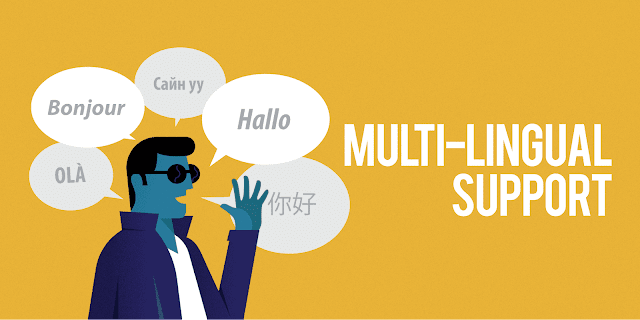As our world becomes more interconnected, mobile applications are reaching a global audience. Android, being the dominant mobile operating system, provides robust support for multilanguage localization through the use of locales. The ability to adapt an application's content to different languages and cultural contexts is essential for engaging and serving users worldwide. In this blog post, we will delve into the importance of multilanguage support in Android, explore the concept of locales, and discuss how to implement localization effectively.
Understanding Locales:
A locale represents a specific geographical, political, or cultural region. It encompasses language, country, and other regional settings. In Android, the locale is a critical component for localization, enabling developers to adapt their applications to various linguistic and cultural preferences. By using appropriate locale settings, developers can provide users with an immersive and personalized experience, leading to higher user satisfaction and increased engagement.
The Importance of Multilanguage Support:
- Expanding the User Base: By offering multilanguage support, developers can tap into new markets and reach a broader audience. Users are more likely to engage with an application that speaks their language, which leads to increased downloads, usage, and potential revenue streams.
- Enhancing User Experience: Language is a crucial aspect of user experience. Users feel more comfortable and connected to an application when it communicates with them in their native language. Multilanguage support ensures that users can understand and navigate an app effortlessly, leading to higher user retention and positive reviews.
- Fostering Inclusivity: Language diversity is a reality in our globalized world. By providing multilanguage support, developers demonstrate inclusivity and respect for different cultures and languages. It allows individuals from various backgrounds to access and benefit from the application, regardless of their language preferences.
Implementing Multilanguage Support in Android:
- String Resource Localization: Android uses resource files, particularly strings.xml, to store application strings. By creating separate resource files for each supported language, developers can provide translations for all the user-facing text in their application. Android automatically loads the appropriate strings based on the user's device locale.
- Supporting Right-to-Left Languages: In addition to translating text, some languages, such as Arabic or Hebrew, are written from right to left (RTL). Android provides support for RTL layouts, allowing developers to create mirrored layouts for such languages. This ensures a seamless and intuitive user interface for RTL language users.
- Localizing Images and Assets: Text is not the only element that requires localization. Images, icons, audio files, and other media assets should also be localized to align with the target audience's cultural context. Developers can provide alternative resources for different locales to ensure visual consistency and relevance.
- Testing and Quality Assurance: Localization should be thoroughly tested to ensure accuracy and consistency. Manual and automated testing methods can be employed to verify the correct loading of translations, proper alignment of text, and overall user experience in different locales. It's important to involve native speakers or professional translators during the testing process to ensure linguistic correctness.
Conclusion:
Multilanguage support through locale localization is crucial for creating inclusive and engaging Android applications. By adapting an app's content to various languages and cultural preferences, developers can expand their user base, enhance user experience, and foster inclusivity. Through the effective implementation of localization techniques like string resource localization, support for right-to-left languages, and localizing images and assets, developers can create applications that resonate with users worldwide. Embracing multilanguage support in Android not only opens doors to new opportunities but also promotes a more connected and globalized digital ecosystem.



No comments:
Post a Comment